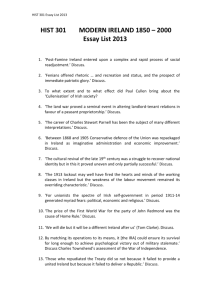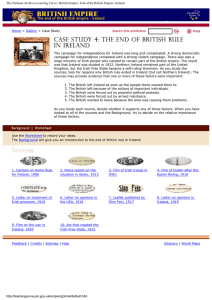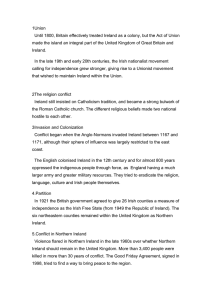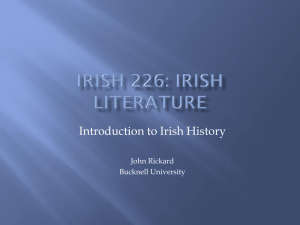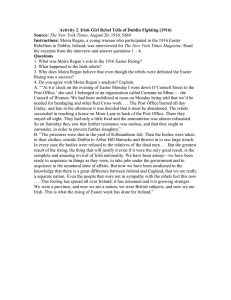HIST 447 01
advertisement
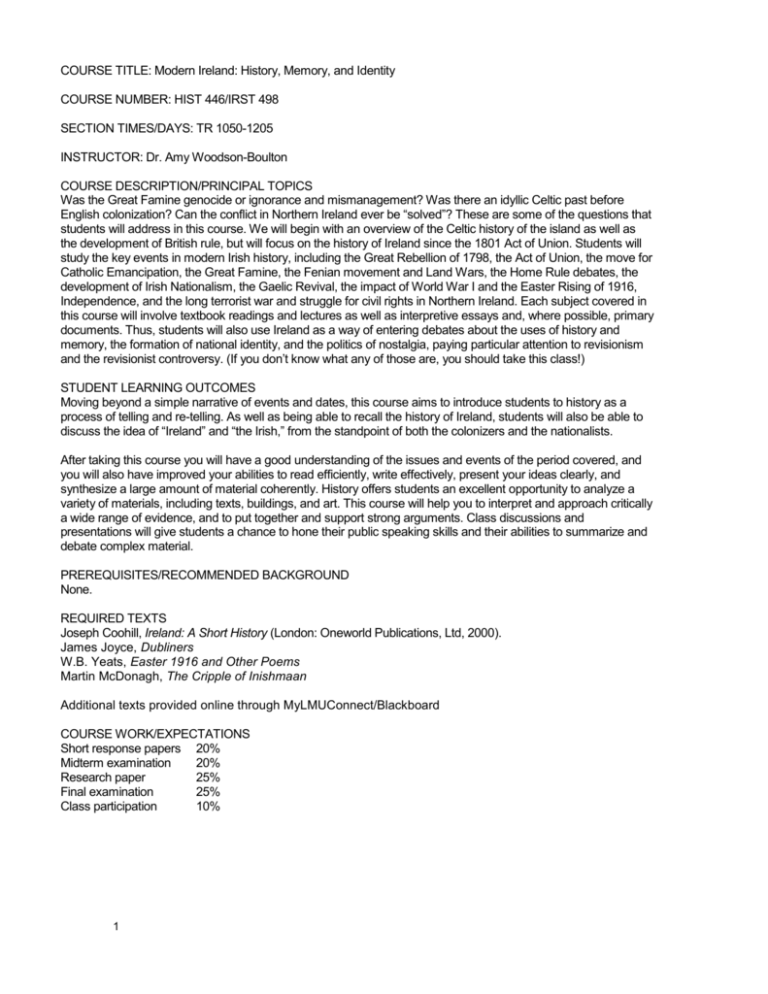
COURSE TITLE: Modern Ireland: History, Memory, and Identity COURSE NUMBER: HIST 446/IRST 498 SECTION TIMES/DAYS: TR 1050-1205 INSTRUCTOR: Dr. Amy Woodson-Boulton COURSE DESCRIPTION/PRINCIPAL TOPICS Was the Great Famine genocide or ignorance and mismanagement? Was there an idyllic Celtic past before English colonization? Can the conflict in Northern Ireland ever be “solved”? These are some of the questions that students will address in this course. We will begin with an overview of the Celtic history of the island as well as the development of British rule, but will focus on the history of Ireland since the 1801 Act of Union. Students will study the key events in modern Irish history, including the Great Rebellion of 1798, the Act of Union, the move for Catholic Emancipation, the Great Famine, the Fenian movement and Land Wars, the Home Rule debates, the development of Irish Nationalism, the Gaelic Revival, the impact of World War I and the Easter Rising of 1916, Independence, and the long terrorist war and struggle for civil rights in Northern Ireland. Each subject covered in this course will involve textbook readings and lectures as well as interpretive essays and, where possible, primary documents. Thus, students will also use Ireland as a way of entering debates about the uses of history and memory, the formation of national identity, and the politics of nostalgia, paying particular attention to revisionism and the revisionist controversy. (If you don’t know what any of those are, you should take this class!) STUDENT LEARNING OUTCOMES Moving beyond a simple narrative of events and dates, this course aims to introduce students to history as a process of telling and re-telling. As well as being able to recall the history of Ireland, students will also be able to discuss the idea of “Ireland” and “the Irish,” from the standpoint of both the colonizers and the nationalists. After taking this course you will have a good understanding of the issues and events of the period covered, and you will also have improved your abilities to read efficiently, write effectively, present your ideas clearly, and synthesize a large amount of material coherently. History offers students an excellent opportunity to analyze a variety of materials, including texts, buildings, and art. This course will help you to interpret and approach critically a wide range of evidence, and to put together and support strong arguments. Class discussions and presentations will give students a chance to hone their public speaking skills and their abilities to summarize and debate complex material. PREREQUISITES/RECOMMENDED BACKGROUND None. REQUIRED TEXTS Joseph Coohill, Ireland: A Short History (London: Oneworld Publications, Ltd, 2000). James Joyce, Dubliners W.B. Yeats, Easter 1916 and Other Poems Martin McDonagh, The Cripple of Inishmaan Additional texts provided online through MyLMUConnect/Blackboard COURSE WORK/EXPECTATIONS Short response papers 20% Midterm examination 20% Research paper 25% Final examination 25% Class participation 10% 1







